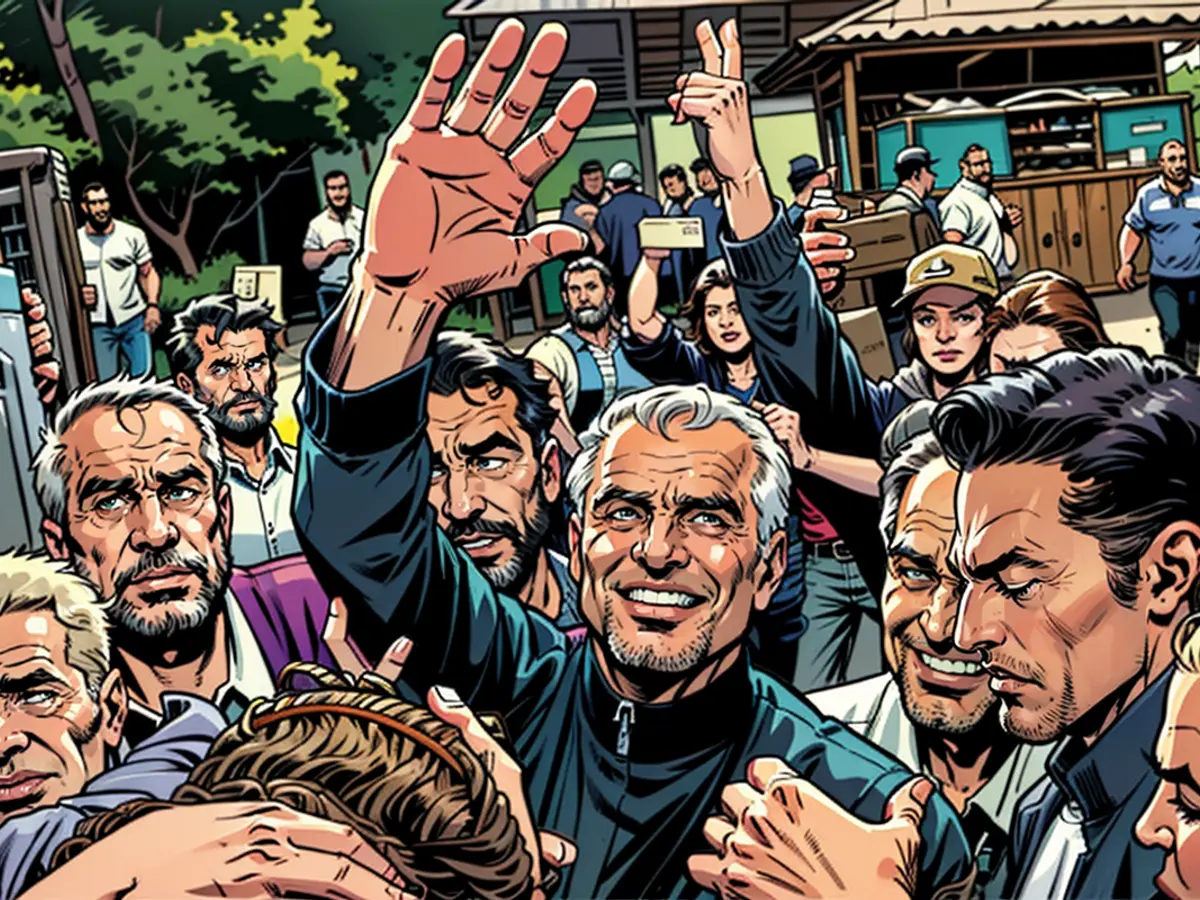Reformers versus hardliners: run-off election for presidency in Iran has begun
The results will be announced late Saturday morning. Peseschkian and Djalili are candidates for the succession of the late Amtsinhaber Ebrahim Raisi, who was fatalely injured in a helicopter crash on May 19th.
Voters, both in the country and abroad, had access to a total of 58,638 polling stations, according to the state television, quoted Interior Minister Ahmed Vahidi. Long queues were shown in front of polling stations in Sava in the center of Iran and Kerman in the south on state television. The polling stations in Teheran were less crowded, as reported by AFP news agency reporters.
According to official figures, Peseschkian received 42.4% of the votes in the first round on the previous Friday, while Djalili came in second with 38.6%. A total of 61 million citizens were called to vote, with a turnout of only 40% in the first round - the lowest since the Islamic Revolution in 1979. Khamenei therefore called for increased participation in the second round.
"I have heard that the enthusiasm and interest of the people is greater than before," said Khamenei after casting his vote on Friday. "That would be very pleasant," he added.
While Djalili enjoys Khamenei's trust and is supported by hardliners and other ultra-conservative candidates who have dropped out or withdrawn from the race, the two former reformist presidents Mohammad Khatami and Hassan Rouhani have rallied behind Peseschkian. Khatami urged voters to "vote for the future and the well-being of the country" during the vote on Friday.
Independent of the outcome of the election, the effects on the political reality in the country are expected to remain within certain limits. Political power in Iran has been in the hands of the spiritual leader of the country since the Revolution in 1979. The president is responsible for implementing the political guidelines set by the spiritual leader.
- In the upcoming run-off election, Ali Khamenei, the country's spiritual leader, has expressed his hope for increased participation, encouraging the people to support Ebrahim Raisi's successor among the two candidates, Saeed Peseschkian and Said Jalili.
- Ayatollah Ali Khamenei, along with former presidents Mohammad Khatami and Hassan Rouhani, has publicly backed Peseschkian, who garnered 42.4% of the votes in the first round, while Raisi's chosen successor, Jalili, obtained 38.6%.
- Hardliner Said Jalili has received support from Ayatollah Ali Khamenei and other ultra-conservative candidates, while the reformists, led by Khatami, have rallied behind Peseschkian.
- According to Khamenei, the enthusiasm and interest of the people in the presidential election are at an all-time high, as shown by the longer queues at polling stations in Sava and Kerman, contrasting with the less crowded stations in Tehran, reported by AFP.
- The television broadcast live coverage of the voting process, with polling stations in cities across Iran displaying a high level of interest and participation, following the call to action from Ayatollah Khamenei.
- Khamenei has noted that, despite the expectations surrounding the election, political power in Iran remains firmly in the grasp of the spiritual leader, with the president acting as the executive to implement the political guidelines set forth by Ayatollah Khamenei.







